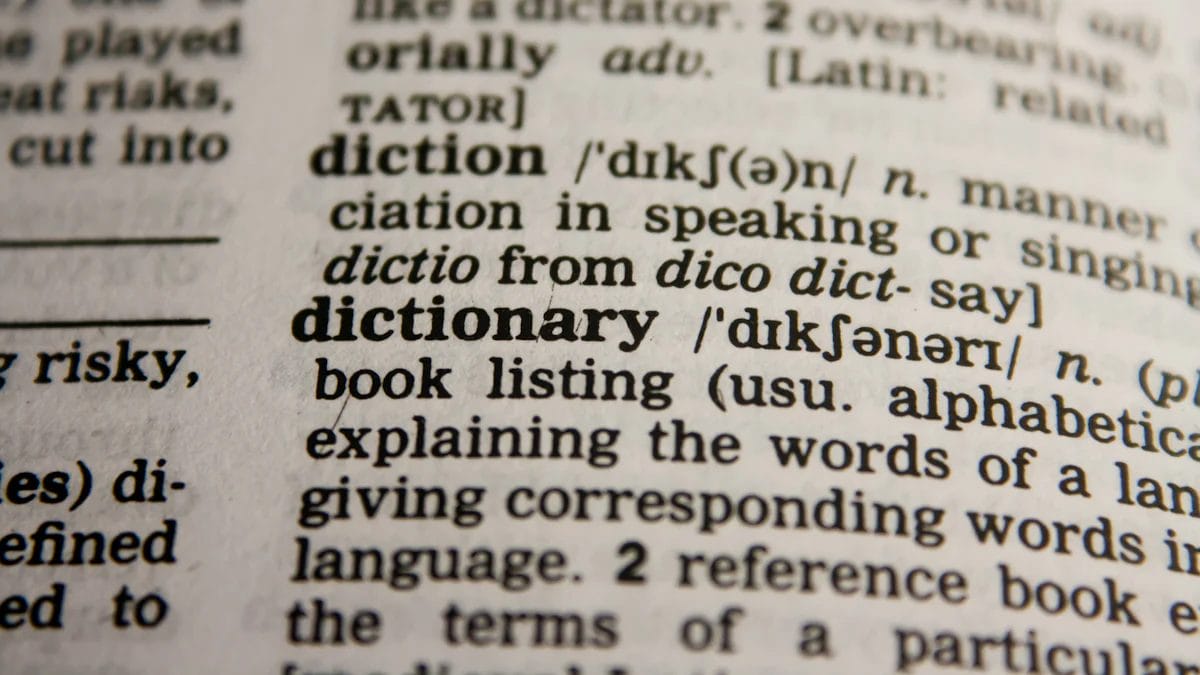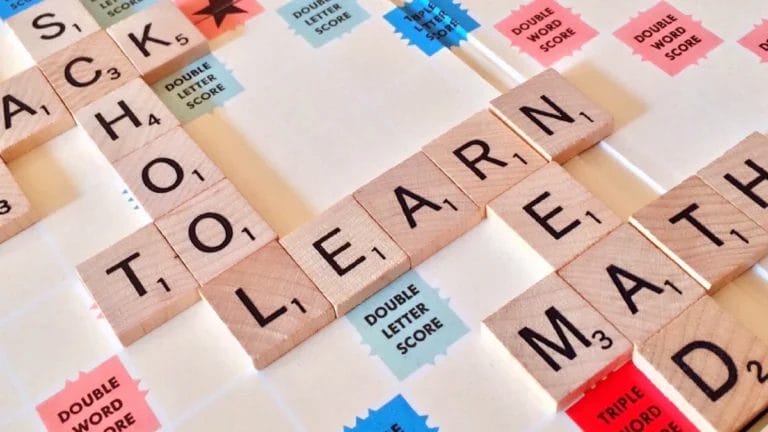
Mastering the 500+ most common English words to used in daily life can transform how you communicate. These words form the backbone of effective communication, helping you express yourself clearly and confidently. Whether you’re a native speaker or learning English as a second language, building a strong vocabulary is essential.
Think about it—understanding instructions or joining everyday conversations becomes much easier when you know the right words. These daily used English words are not just practical; they also enhance your confidence and fluency. In 2025, where global connections are stronger than ever, having a solid grasp of essential vocabulary is more important than ever.
By focusing on these most common English words to used in daily life, you can enhance your vocabulary and give your language skills a new lease on life. Ready to make your communication as good as new? Let’s dive in!

Formal greetings are perfect for professional settings or when meeting someone for the first time. They help you make a polite and respectful impression.
Here are some examples:
Using these phrases in your daily conversations can boost your confidence and make your communication more effective.
Informal greetings are great for casual chats with friends or family. They’re simple and friendly.
For example:
These phrases are easy to use and help you connect with others in a relaxed way.
Expressing gratitude is essential in daily life. It shows appreciation and builds positive relationships.
Some common phrases include:
Adding these words to your vocabulary makes your interactions more meaningful.
Apologizing politely can help you maintain good relationships.
Here are some examples:
Using polite phrases like these softens the impact of mistakes and keeps communication respectful.
Small talk often starts with questions about well-being.
These questions are simple yet effective:
They’re great for starting conversations and showing you care.
Talking about the weather is a universal way to break the ice.
You can say:
Other general topics like music, food, or travel also work well.
For example:
These topics make conversations flow naturally and help you connect with others.
Verbs are the backbone of any sentence. They bring your words to life and make your communication more dynamic. Let’s explore some essential verbs you can use daily to express actions, emotions, and ideas effectively.
Action verbs describe what you do every day. These words are practical and help you talk about your daily activities with ease.
Here’s a list of common physical actions you can use in conversations:
For example, instead of saying, “I’m going to the kitchen,” you can say, “I’m going to cook dinner.” Using action verbs makes your sentences more vivid and engaging.
Your thoughts and feelings also need the right words. Mental and emotional action verbs help you express what’s happening inside your mind.
Some examples include:
For instance, you might say, “I think this is a great idea,” or “I dream of visiting new places.” These verbs add depth to your conversations and make your communication more personal.
Helping verbs, like “is,” “are,” and “was,” support the main verb in a sentence. They clarify the time or condition of an action.
For example:
These small but mighty words make your sentences clear and precise.
Modal verbs, such as “can,” “must,” and “should,” express possibility, necessity, or permission. You can use them to add meaning to your sentences.
For example:
Modal verbs are essential for polite and effective communication.
Linking verbs don’t show action. Instead, they connect the subject to additional information. For example, in the sentence, “You are confident,” the verb “are” links “you” to “confident.” Other linking verbs include “seem,” “appear,” and “become.” These verbs help you describe states of being or relationships.
Here’s how linking verbs work in real life:
Using linking verbs makes your sentences flow naturally and keeps your communication smooth.
Nouns are the building blocks of your vocabulary. They help you name people, places, and things, making your conversations more precise and engaging. Let’s explore some of the most common nouns you’ll use daily.
Talking about your family and friends is a big part of daily conversations. You often use words like “mother,” “father,” “sister,” or “brother” to describe your family members. For example, you might say, “My mother makes the best pancakes,” or “I’m visiting my brother this weekend.”
When it comes to friends, words like “best friend” or “buddy” come in handy. You could say, “My best friend and I love trying new restaurants,” or “I met a new buddy at the gym.” These words make it easy to share stories about the people in your life.
In professional settings, you’ll often use titles like “manager,” “teacher,” or “doctor.” For instance, you might say, “My manager assigned me a new project,” or “The doctor gave me great advice.” These nouns are essential for clear communication in work or formal environments.
Your home and neighborhood are central to your daily life. Words like “kitchen,” “bedroom,” or “garden” help you describe your living space. For example, “I cleaned the kitchen this morning,” or “The garden looks beautiful after the rain.”
In your neighborhood, you might use words like “park,” “store,” or “school.” You could say, “The park near my house is perfect for jogging,” or “I stopped by the store to grab some groceries.” These nouns make it easy to talk about your surroundings.
When you’re on the move, nouns like “airport,” “hotel,” or “beach” become part of your vocabulary. For example, “The airport was crowded today,” or “We stayed at a lovely hotel by the beach.” These words are essential for sharing travel experiences or making plans.
Household items are part of your daily routine. Words like “chair,” “table,” “lamp,” or “mirror” are common in conversations. For instance, “I bought a new lamp for my bedroom,” or “The table in the dining room is perfect for family dinners.” These nouns help you describe your home in detail.
Technology plays a huge role in modern life. Words like “phone,” “laptop,” “charger,” or “headphones” are used daily. You might say, “I need to charge my phone,” or “My laptop is great for work and entertainment.” These nouns are essential for discussing gadgets and staying connected.
By mastering these frequently used nouns, you’ll make your communication smoother and more effective. They’re the words you’ll rely on every day to share your thoughts and experiences.
Adjectives and adverbs are like the seasoning in your sentences. They add flavor, detail, and personality to your words. Whether you’re describing something or explaining how something happens, these parts of speech make your communication more vivid and engaging.
When you describe how something looks, feels, or appears, you use physical adjectives. These words help paint a clear picture for your listener or reader.
Here are some common ones you can use daily:
For example, instead of saying, “I bought a car,” you could say, “I bought a sleek, red car.” Doesn’t that sound more exciting? Adding these adjectives to your vocabulary makes your descriptions pop.
Talking about emotions or personality traits? Emotional adjectives help you express feelings, while personality adjectives describe someone’s character.
Some examples include:
You might say, “I feel nervous about the presentation,” or “She has a happy personality that lights up the room.” These words make your conversations more relatable and expressive.
Adverbs of frequency tell how often something happens. They’re perfect for describing your daily routines or habits.
| Type of Adverb | Example Sentence |
|---|---|
| Adverb of Frequency | I usually go to the gym on weekends. |
| She always wakes up at 7:00 am. | |
| The family rarely eats brown rice for dinner. | |
| I never take sick days. |
Using these words helps you explain your schedule or habits clearly.
Adverbs of manner explain how something happens. They add detail to your actions.
Here are some examples:
| Type of Adverb | Example Sentence |
|---|---|
| Adverb of Manner | The cat runs quickly. |
| She plays the violin terribly. | |
| The horse moved fast. | |
| She plays the piano well. |
For instance, instead of saying, “He runs,” you could say, “He runs quickly.” It’s a small change, but it makes your sentence more interesting. Adding these adverbs to your daily vocabulary will make your English sound more natural and polished.
By mastering these adjectives and adverbs, you’ll bring your words to life. They’re simple, but they make a big difference in how you express yourself every day.
Prepositions and conjunctions are small but mighty words that make your sentences flow smoothly. They help you connect ideas, describe relationships, and add clarity to your daily conversations. Let’s explore how you can use them effectively in your English vocabulary.
Prepositions are words that show the relationship between a noun (or pronoun) and another part of the sentence. They’re essential for describing place, time, and other details in your daily life.
Prepositions of place help you explain where something is. You probably use these words every day without even realizing it.
Here are some examples:
These prepositions make it easy to describe locations and give directions.
Prepositions of time let you talk about when something happens. They’re perfect for planning your daily schedule.
For example:
Using these prepositions helps you communicate time-related details clearly.
Tip: Prepositions can act as adjectives, adverbs, or noun complements. For instance, in “The book on the table,” the preposition “on” describes the book’s location.
Conjunctions are the glue that holds your sentences together. They connect words, phrases, or clauses, making your English sound natural and polished.
Coordinating conjunctions link items of equal importance. You use them daily to combine ideas.
Common examples include:
These words make your sentences more dynamic and engaging.
Subordinating conjunctions introduce dependent clauses, adding depth to your sentences.
Some examples are:
These conjunctions help you explain reasons, conditions, or sequences in your daily conversations.
By mastering prepositions and conjunctions, you’ll make your English more precise and expressive. These words may be small, but they play a big role in your daily communication.

Numbers, days, and time expressions are part of your daily conversations. Whether you’re scheduling a meeting, talking about your birthday, or describing how often you do something, these words help you communicate clearly and effectively.
Cardinal numbers are the ones you use to count or quantify things. They’re straightforward and practical.
For example:
You’ll use these numbers every day, whether you’re shopping, counting items, or sharing details about your life.
Ordinal numbers show the order or position of something. You’ll find them useful in many situations:
These numbers help you describe sequences, ranks, and positions with ease.
Knowing the abbreviations for days and months makes writing and speaking more efficient.
Here’s a handy table for quick reference:
| Month/Day | Abbreviation(s) |
|---|---|
| January | Jan. |
| February | Feb. |
| March | Mar. |
| April | Apr. |
| May | May |
| June | Jun. |
| July | Jul. |
| August | Aug. |
| September | Sep. or Sept. |
| October | Oct. |
| November | Nov. |
| December | Dec. |
| Sunday | Sun |
| Monday | Mon |
| Tuesday | Tue or Tues |
| Wednesday | Wed |
| Thursday | Thu, Thur, or Thurs |
| Friday | Fri |
| Saturday | Sat |
You can use these abbreviations in casual writing or when space is limited.
For example:
Using these abbreviations saves time and keeps your communication concise.
Talking about time is a daily necessity.
You might say:
Phrases like “half past” or “quarter to” make your time expressions sound natural and fluent.
Time-related idioms and phrases add color to your conversations.
Here are some examples:
| Idiom | Meaning | Example |
|---|---|---|
| Once in a blue moon | Something that happens rarely. | “I visit the beach once in a blue moon.” |
| Kill time | To pass time doing something idle. | “I killed time by reading a book.” |
| Better late than never | Doing something late is better than not doing it at all. | “He arrived late, but better late than never.” |
These expressions make your English sound more engaging and relatable. Try using them in your daily conversations to add a bit of flair!
Slang and modern expressions keep your conversations fresh and relatable. They help you connect with others, especially in casual settings or online. Let’s explore some popular slang words and trending phrases that are making waves in 2025.
Slang words add personality to your speech. They’re fun, informal, and often reflect the latest trends.
Here are some you’ll hear everywhere this year:
These words make your conversations more lively and help you sound in tune with the times.
Modern phrases often reflect changes in technology and culture. In 2025, social media and tech trends are shaping how we communicate.
Here are some key trends you’ll notice:
These trends highlight how social media is evolving. For example, TikTok is no longer just for entertainment—it’s becoming a hub for everything from shopping to education.
Technology also brings new phrases into daily life. You’ll hear terms like “social commerce” and “live shopping events” more often. Social platforms now integrate in-app shopping features, making it easier to buy products directly.
By learning these slang words and phrases, you’ll stay ahead of the curve and sound like a pro in casual and online conversations. So, why not try using a few of these in your next chat?
Mastering the 500+ most common English words can transform how you connect with others. These words make communication smoother, help you speak fluently, and boost your confidence in any situation. They’re also key to building relationships at work, school, or even during casual chats.
Want to practice? Try using vocabulary apps, chatting with friends, or writing short stories. You could even challenge yourself to learn five new words daily. The more you use these words, the more natural they’ll feel. So, why not start today? 😊
